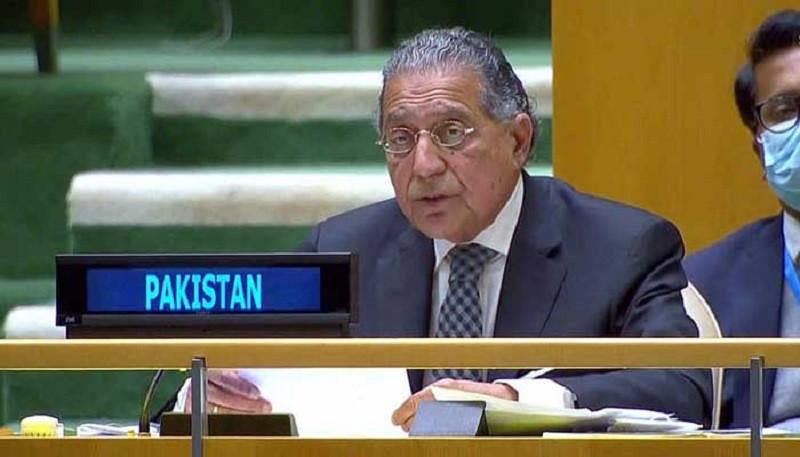
Pakistan has announced plans to formally brief the United Nations Security Council (UNSC) on the escalating situation in South Asia, reflecting ongoing diplomatic efforts to address heightened tensions with India following recent cross-border incidents.
The decision follows a series of developments that have sharply increased hostilities between the two nuclear-armed neighbors, notably the April 22 attack in Indian-administered Kashmir’s Pahalgam region, which killed 26 people. India has accused Pakistan of involvement in the attack, a charge Islamabad denies, instead calling for a neutral investigation with third-party oversight.
Pakistan’s Foreign Minister Ishaq Dar has instructed the country’s Permanent Representative to the UN, Ambassador Asim Iftikhar Ahmad, to urgently initiate efforts to convene a Security Council meeting. Islamabad intends to highlight what it describes as India’s “aggressive actions, provocations, and inflammatory statements” that are endangering peace and security not only in South Asia but beyond.
Among the issues Pakistan plans to raise is India’s suspension of its participation in the Indus Waters Treaty, a 1960 agreement governing water distribution between the two countries. Pakistan views this move as an illegal measure exacerbating regional instability.
Ambassador Asim Iftikhar Ahmad, who has recently addressed the Security Council on various global issues, is expected to emphasize Pakistan’s call for international attention to the deteriorating situation and urge the Council to act to prevent further escalation. Pakistan, currently a non-permanent member of the Security Council, aims to use its position to bring the dispute to the forefront of international diplomacy.
The briefing is part of broader diplomatic efforts by Pakistan to seek multilateral engagement and peaceful resolution amid ongoing military confrontations, including recent cross-border strikes and counterstrikes. Islamabad has also sought support from international partners, with Prime Minister Shehbaz Sharif engaging in talks with regional leaders to de-escalate tensions.
The Security Council has previously condemned terrorist attacks in the region and called for restraint, but the current briefing signals Pakistan’s intent to place the spotlight on India’s actions and seek a more proactive role for the UN in managing South Asia’s security challenges.
As the situation remains volatile, the international community watches closely, with hopes that diplomatic channels will prevail over military confrontation in one of the world's most sensitive and potentially explosive geopolitical flashpoints.
Comments
Post a Comment